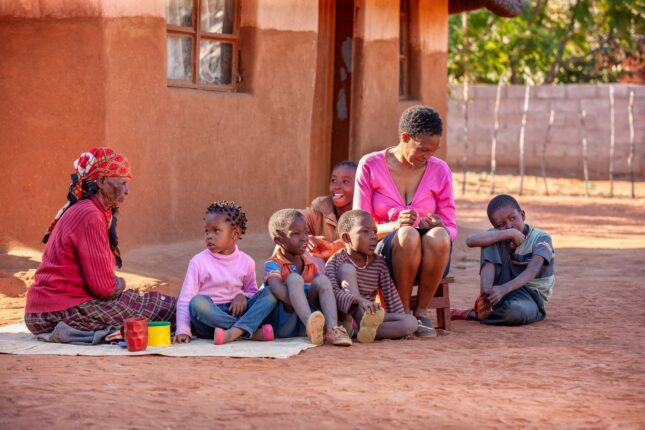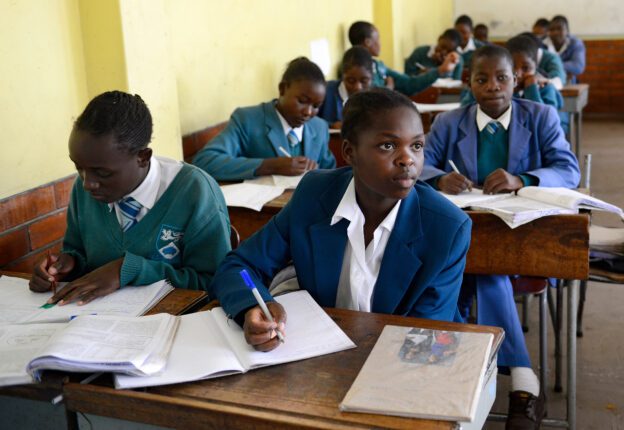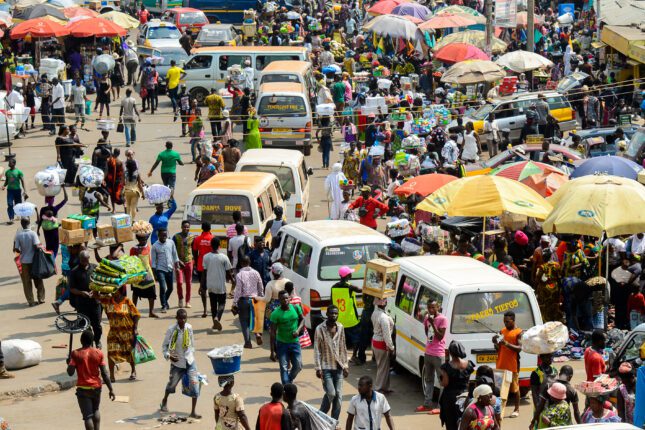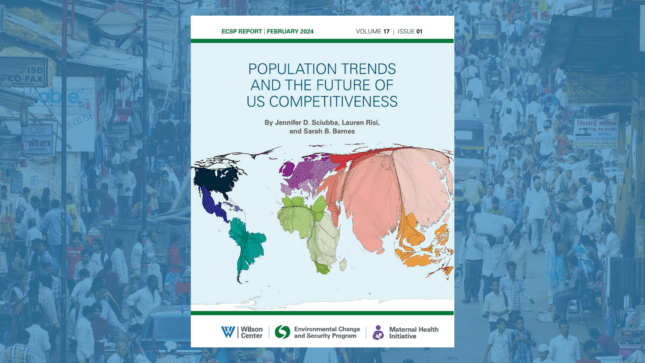-
ECSP Weekly Watch | December 9 – 13
›
A window into what we’re reading at the Wilson Center’s Environmental Change and Security Program
Mekong River Development Faces Public Outcry (Mongabay)
The Mekong River flows through China, Myanmar, Laos, Thailand, Cambodia, and Vietnam—and a new development on this waterway near the downstream Thailand-Laos border has triggered protests in Thailand. The Pak Beng hydropower development is a joint project of China Datang Overseas Investment and Thailand-based Gulf Energy Development which is estimated to generate 912 megawatts of power to be sold to Thailand’s state energy company.
-
Confronting Pronatalism is Essential for Reproductive Justice and Ecological Sustainability
›
Pronatalism, the push for women to have more children, has elbowed its way into prominence in public discourse. In the United States, cultural and institutional pressures on women to bear children are articulated in various ways, from negative portrayals of women who don’t consider having a child a viable choice for themselves, to a burgeoning Silicon Valley subculture that advocates having “tons of kids” to save the world, to policy proposals that would further restrict reproductive choice or limit the voting power of the childless. The stigmatization of people without children and the recent rise in contemporary pronatalism is a global phenomenon.
-
Can the UPR Advance Global Women’s Rights? Lessons from Sub-Saharan Africa
›
At the opening of the Commission on the Status of Women in New York this past March, UN Secretary-General António Guterres underscored the importance of stepping up national and global efforts to advance the rights of women. Guterres observed that “many women and girls are also facing a war on their fundamental rights at home and in their communities. Hard-fought progress is being reversed.”
-
ECSP Weekly Watch | August 19 – 23
›
A window into what we are reading at the Wilson Center’s Environmental Change and Security Program
What’s Next for the Teesta Water Disputes? (The Hindu)
The recent political upheaval in Bangladesh which led to the resignation of Prime Minister Sheikh Hasina and the return of Nobel Peace Prize laureate Muhammed Yunus as leader of an interim government is not the only tumult in this nation. A worsening trend in weather events there has heightened Bangladesh’s exposure to climate shocks and allowed a dispute over the Teesta River to reemerge.
-
World Population Day: Revitalizing Discourse on Population, Development, and Rights
›
July 11 is World Population Day—designated annually by the United Nations as a focused opportunity to examine population trends and their implications for society. This year, World Population Day offers a chance to reflect on the 30th anniversary of one of the largest and arguably most influential world population conferences in history—the 1994 International Conference on Population and Development (ICPD).
-
Climate Change and Children’s Mobility
›
Environmental shocks have been linked to significant changes in human migration around the world. Yet the large literature on environmental change and migration to date has primarily focused on working-age adults, working largely on the assumption that climatic impacts are most likely to influence labor migration.
-
ECSP Weekly Watch | May 6 – 10
›
A window into what we are reading at the Wilson Center’s Environmental Change and Security Program
2024 World Migration Report Highlights Climate-Food-Mobility Nexus (International Organization for Migration)
The International Organization for Migration’s flagship World Migration Report 2024 highlights a wide variety of factors contributing to global migration, including conflict, economic or political insecurity, and climate change. Between 2020 and 2022 the number of asylum seekers increased more than 30% to 5.4 million people. The report centers climate change’s impact on food security as a core driver of migration. In 2022, 275 million people faced acute food insecurity, which represents a 146% increase since 2016.
-
REPORT LAUNCH | Population Trends and the Future of US Competitiveness
›From the Wilson Center // February 5, 2024 // By Jennifer Dabbs Sciubba, Lauren Herzer Risi & Sarah B. Barnes
This article is adapted from “Population Trends and the Future of US Competitiveness”
Demographic issues intersect with a number of policy priorities on the congressional agenda, including the economy, immigration, health care and foreign policy, but how population trends influence policy outcomes is often overlooked or misunderstood. In a new report, we explore how population dynamics have changed dramatically over the last few decades, and what these changes mean for the economic and security interests of the United States.
Showing posts from category demography.










